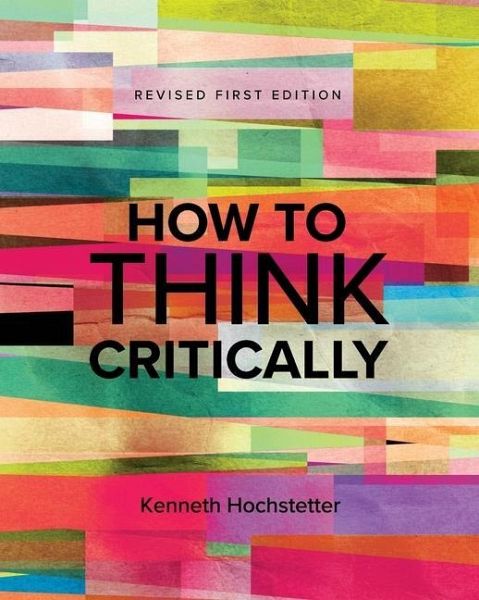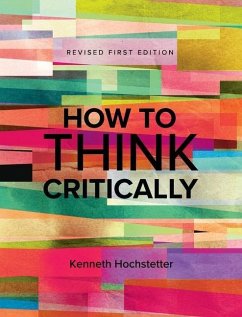
How to Think Critically
Versandkostenfrei!
Versandfertig in über 4 Wochen
103,99 €
inkl. MwSt.
Weitere Ausgaben:

PAYBACK Punkte
52 °P sammeln!
How to Think Critically helps students develop their understanding of and ability to cultivate critical thought in support of their educational pursuits, as well as their personal and professional endeavors. The opening chapter describes the appropriate attitude required to think critically, the various stages of critical thinking, why critical thinking matters, and obstacles students may encounter as they approach critical thought. Additional chapters explore belief, truth, and knowledge; making and evaluating statements; the difference between reasoning and arguments; and how to create stron...
How to Think Critically helps students develop their understanding of and ability to cultivate critical thought in support of their educational pursuits, as well as their personal and professional endeavors. The opening chapter describes the appropriate attitude required to think critically, the various stages of critical thinking, why critical thinking matters, and obstacles students may encounter as they approach critical thought. Additional chapters explore belief, truth, and knowledge; making and evaluating statements; the difference between reasoning and arguments; and how to create strong arguments. Dedicated chapters delve into the two main types of deductive logic: categorical and propositional. Students explore inductive logic with examinations of statistical syllogisms, generalizations, analogical arguments, causal arguments, and explanations. The final chapter focuses on logical fallacies to help students avoid the creation of bad arguments and to provide them with an efficient way to communicate criticisms of other's reasoning. An effective and indispensable guide for students, How to Think Critically is ideal for courses in the social sciences. The text is also optimal for use in college success and freshman orientation courses and programs.














